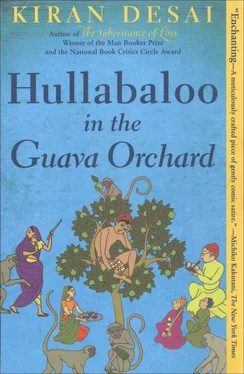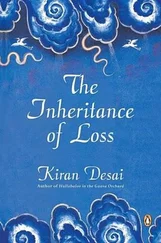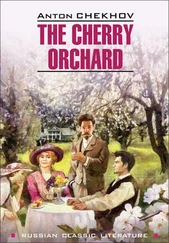But she looked at him unvanquished. She was not one to be frightened by such threats. After all, this very asylum had been brought up several times in relation to her mother and her brother and, losing its ominous quality, it had begun to sound like a rather familial sort of institution.
‘This is a serious matter,’ the police superintendent said, waving his baton up and down. ‘Really very serious.’ He was happy at having such an interesting thing to do for a change. ‘Yes, you have created quite a to-do here.’
At this moment one of the other policemen came and whispered something urgently to him.
‘What?’ he said. ‘Are you the sister of the man who sits up in the tree? The Baba is your brother?’
She nodded sulkily.
The superintendent went out of the room and then came back with several curious policemen. ‘I’m sorry,’ he said. ‘We did not know your family name. Please come along with us. We will escort you back to your family.’ And he gave a sniggering policeman, overcome by the humour of the situation, an unpleasant shove from behind. Didn’t he know he should be careful? The police were not going to upset the family of one of the town’s most respected personages. ‘In Shahkot, we honour and respect our hermits,’ he said.
Still glowering, Pinky was driven back to the Chawla compound in the station jeep, accompanied by the superintendent and several other policemen. She was glad she had bitten Hungry Hop.
The policemen all climbed up the ladder to receive Sampath’s blessings. The superintendent placed his unpleasantly greasy head under Sampath’s toes and felt as though he were being bathed in pure holiness, as if he were being washed gently and cleansed in sweet blessing; it reminded him of the feeling he had when he was given presents on festival days. ‘Can you tell me, Baba, when can I expect a son?’ he whispered.
Sampath, not in the mood to answer, withdrew his foot and tucked it under him. He was a little afraid of policemen, who had more than once shouted at him as he ignored the traffic rules when bicycling to work at the post office.
‘No need to worry,’ said Mr Chawla hurriedly, not wishing to upset the police. ‘You can ask him another time. Sometimes it is hard to get him to pay attention to what is happening down below.’ Why did Sampath always behave badly just when important people came to visit?
But the policeman nodded amiably. ‘People like this are not of this world and so it is natural that sometimes they separate out.’
Sampath opened one eye like an owl so he could maintain his distance, while also joining in this interesting talk about separating out that had just come up: ‘If you keep muddy, churned-up water still, soon the dirt will settle to the bottom. If you churn up milk, the cream will rise to the top. Ponder the nature of what lies within you and behave accordingly’
‘Can we have a photograph, sir?’ the policemen asked, awed. ‘For the police station, sir.’
The monkeys entertained themselves by throwing peanuts at the policemen’s heads.
Mr Chawla had not even thought of photographs! What a market he was missing. He hitched a ride into Shahkot on one of the scooter rickshaws that were constantly coming and going, and brought the town photographer back with him. The photographer climbed up into the tree with several cameras and a painted piece of canvas depicting background scenes on both sides. On one side there was a scene of swans floating in a pond with many pink lotus flowers; on the other, a magenta sunset over the sea with a far boatman stalled at the horizon in a tiny boat.
‘Helloji,’ said Sampath, delighted at the photo opportunity. ‘Aren’t you the boy who sent secret love letters to that girl from the convent school?’
The poor photographer was so taken aback, he dropped his equipment bag.
‘Don’t pay any attention,’ said Mr Chawla soothingly. ‘Somehow he knows these things. But please don’t worry, I won’t tell anyone.’
Still, despite Mr Chawla’s kind words, it took the photographer several minutes to recover himself and gather strength enough to climb back into the tree. Along with Mr Chawla, he positioned the canvas sheeting behind Sampath and, hanging treacherously from the branches, he did his best to find the ideal angle of Sampath’s face, first against the sinking sun and then amidst the lotus flowers.
When the monkeys, who were pulling the leaves off a neighbouring tree, spotted this invasion of their territory, just like that, in broad daylight if you please, they let out screams of outrage and bounded back into the tree to help Sampath defend their domain. Leaping from branch to branch in a state of red-gummed, brown-toothed indignation, they almost caused the already jittery photographer to fall down upon his head.
‘Sorry, sir,’ said the poor young photographer, new to the job. ‘I cannot do this. My mother would not like me doing such dangerous work.’
‘No, no,’ soothed Mr Chawla. ‘It is perfectly safe. I myself will talk to your mother if you wish. Look, we will make it safer right away.’
Ammaji was stationed down below with a pile of stones and a slingshot made of a branched twig and a piece of black elastic. As she sent the pebbles flying, keeping the irate monkeys at bay, the photo shoot was completed according to the specifications of Mr Chawla. Sampath had wished to pose properly with a nice smile and perhaps an arm thrown casually around a branch. But his father had not allowed him to do any such thing. ‘Keep your hands folded in your lap. Keep a gentle smile upon your face,’ he instructed. ‘No showing of your teeth.’
‘No charge,’ said the rattled photographer, happy just to get out without having been bitten or hit with stones. ‘The Baba’s blessings are enough for me. It is for the honour of my family name to do this. And please, sir, do not tell anybody about those letters …’
The photographs of Sampath were printed in hundreds of sheets by the Kwick Photo Shop at no cost and were cut into little squares by their tea boy.
‘How handsome my grandson is,’ said Ammaji when she saw the photograph of Sampath sitting cross-legged amidst lotus blossoms, his umbrella askew, his cot at a slant, looking distracted because of all the commotion with the monkeys and pebbles and the photographer dangling before him with peculiar, militaristic and medical-looking gadgets.
‘It is a terrible picture,’ said Pinky. ‘He has not even combed his hair. You can see the birthmark on his cheek. And he is wearing nothing but his undershorts. How can you say it is a good picture?’ A good picture was one where a man posed with perfectly oiled and coiffed hair, with a nice tight shirt and nice tight trousers, sitting on a moped.
But anyway, despite Pinky’s disapproval, these pictures were sold from Mr Chawla’s cart and proved to be very popular. Soon they made their appearance everywhere, permeating the shops and houses of Shahkot and travelling much farther afield.
In February, this picture was even printed in the Times of India, together with the headline ‘The Baba of Shahkot in his Tree Abode’. This peaceful orchard outside Shahkot, it read, has been transformed by a glut of visitors rushing to see the hermit of Shahkot, whose rare simplicity and profound wisdom are bringing solace and hope to many who are disheartened by these complicated and corrupt times. ‘There is a spiritual atmosphere here that I have not seen anywhere else in India,’ Miss Jyotsna, a postal worker, told this reporter. She professes herself a frequent visitor to this hermit, whom disciples affectionately call ‘Monkey Baba’ or ‘Tree Baba’ in reference to his fondness for animals and the simplicity of his dwelling place. While admitting all who come to see him, he limits the hours when he is available to protect his secluded lifestyle …
Читать дальше












